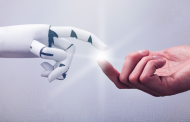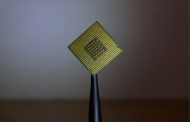Industries from health care to the legal sector face being being disrupted by the latest advances in robotics and artificial intelligence (AI), an expert warns, prompting a renewed warning in the wake of Donald Trump’s US election victory. Jon Williams, an analyst with professional services firm PwC, said governments in Australia need to have a serious debate about how to prepare for huge changes in the workforce.
“I think over the next couple of years, governments have to develop policies that allow them to support the development of new jobs and new industries or we’ll see what we saw in the recent US election, where there’s a huge disaffected group whose job in a factory disappeared and they haven’t been able to replace it,” Mr Williams told the ABC.
Seven months after the biggest robotic drug dispensary in the southern hemisphere went live at Perth’s Fiona Stanley Hospital, pharmacist Ken Tam is keen to talk up the benefits.
His research shows that the robots which scan, move and store $200,000 worth of drugs every day are safer and more efficient than humans.
Mr Tam said all the staff who were previously working in the pharmacy, were re-deployed and it allowed staff, particularly nurses, more time to spend on patient care.
He said there had been a 70 per cent reduction in the number of times that the hospital’s wards had run out of stock and the system is much faster.
“A re-supply of medication manually to a ward would normally take half an hour to physically collect all the stock,” Mr Tam said.
“But with the new system, that can be done in under 10 minutes per ward.”
Mr Tam said the robots read the barcodes on medication, eliminating the chance of human error.
Not about replacing humans
IBM Australia said its Watson cognitive computer system is now being used for everything from health and education to fashion and banking.
“We believe that in the future, every decision that mankind makes is going to be informed by a system like Watson,” the company said in a statement.





